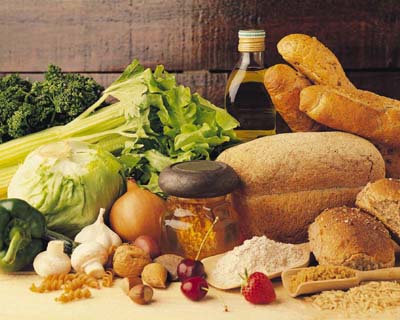A healthy diet and lifestyle can help to overcome many pregnancy-associated conditions and complement a natural approach to health. What you eat and what you do can have a profound effect on your baby’s development—especially during the first four weeks after conception — often before you are even aware you are pregnant. Research suggests that the development of coronary heart disease, stroke or diabetes in later life may be linked to poor nutrition in the first few weeks of life when the placenta and the baby’s circulation, nervous system and major organs are being laid down. By looking after your diet and lifestyle during pregnancy, you are investing in your baby’s future health. It is highly advisable that prenatal health care is of utmost important for both mother and baby health.
For an optimum healthy diet during pregnancy you need a good intake of each of the following :-
Fresh fruit and vegetables :
These contain vitamins, minerals, fibre and protective plant substances that may reduce the risk of some cancers. Aim to eat at least five servings of fruit, vegetables and salad stuffs per day, and preferably more. Buy produce as fresh as possible, preferably organic fruits and veggie , and use it quickly before its vitamin content decreases. Make sure you wash and, where practical, peel all fruit, salads and vegetables (especially carrots and apples) before eating.

Ideally, you need to eat most vegetables apart from potatoes lightly cooked or if applicable, raw for the greatest nutritional benefit. Where possible, steam for a very short time only. If boiling, bring water to the boil before adding vegetables as this helps to destroy enzymes that break down some vitamins such as vitamin C. The vegetable water can also be used to make sauces, gravy or soup as it is rich in minerals lost from the foods during cooking.
Unrefined complex carbohydrates :
Foods such as wholemeal bread, brown rice, wholegrain cereal and wholewheat pasta provide energy, vitamins, trace elements and fiber. They should ideally make up at least half your daily energy intake. Unrefined, complex carbohydrates are also important in helping to maintain stable blood sugar levels during pregnancy, without large swings. The amount that different foods cause blood glucose levels to rise is known as their glycaemic index (GI). For general health and especially during pregnancy, it is best to eat foods with a low to moderate Gl ( glycaemic index ), and to combine foods with a high GI with those that have a lower GI to help even out fluctuations in blood sugar levels. Looking at the list, wholemeal pasta is especially good during pregnancy as it falls in the middle Gl range. Potatoes, parsnips and carrots have a surprisingly high GI index and are therefore best combined with vegetables of a lower GI such as beans and peas.

Protein-rich foods :
These include lean meat, fish, pulses, eggs, milk, cheese, cereals, nuts and seeds. Your need for protein increases by around 15 per cent during pregnancy so it is important to eat a little more of these types of food—especially fish, which is also an important source of healthy fats. Avoid liver and liver products, however, because of the risk of vitamin A toxicity. Vegetarians can obtain protein from pulses, grains, cereals, nuts and seeds.